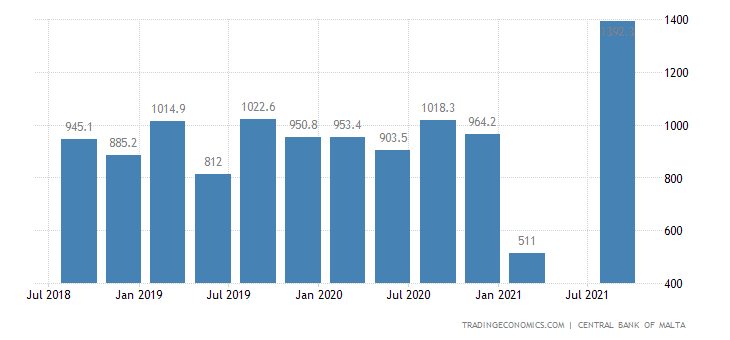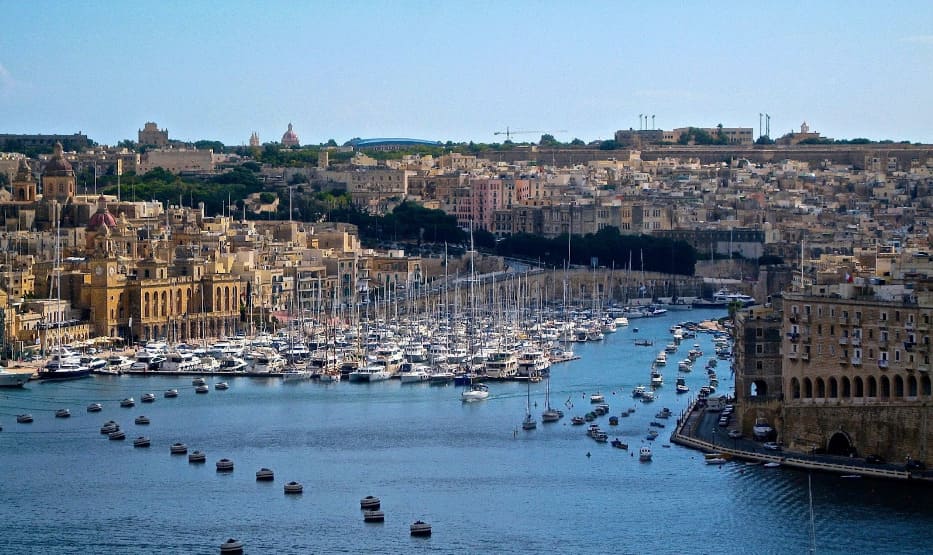Located in the central Mediterranean Sea, Malta, a small island country, has distinguished itself both in history and contemporary times as a destination of desire. The reasons are not far-fetched. Malta, from historical accounts, has played host to foreign power invasions by the Arabs, Romans, Normans, French, and of course, the British. In fact, Malta gained biblical significance when Apostle Paul shipwrecked on this island country.
However, the prominence of this island country does not only lie in the conquest stories of foreign powers or the visits of biblical characters. Malta has today become the cynosure for foreign investments, creating a viable economic atmosphere for external corporate company formation to thrive. Given the desirable investment scenery, company formation Malta has evolved into a foreign investment agenda. UNCTAD’s 2021 WIR data indicates Malta’s foreign direct investment (FDI) progress, which rose from $3.8 billion in 2020 to $3.9 billion in 2021. This was despite the global economic adversities suffered during the recent pandemic.

If anything, a country’s degree of foreign investments determines its economic trajectory. This is especially so for developing countries like Malta. Where a country’s foreign investment index retains an upward trend, the accompanying economic benefits are inevitable. Such a country experiences a remarkable increase in exports, human capital development, access to cutting-edge technology, and market competitiveness, among others.
No doubt, Malta does not exactly stand tall among the top global recipients of foreign investments, which features the likes of Singapore, Netherlands, and Ireland, not to talk of financial giants like the UK and the US. Still, to the financially astute mind, Malta is an exemplary case study for FDI-attracting countries.
How is an island country layered between the South of Europe and the North of Africa enjoying noticeable attention from foreign investors? Why do foreign multinationals operating in Malta consider the island country as a corporate company formation destination? Let’s provide some answers.
1. Incentivizing Legislative Provisions that Encourage Foreign Company Formation
Over the years, the Maltese government has sustained a legislative landscape that incentivizes foreign investors. This has been notable through the development of laws that encourage foreign investments. An example is the Business Promotion Act, which allocates fiscal and otherwise fiscal incentives to offshore corporations. Underlying Malta’s strategic prowess, the Act includes provisions that target these incentives at companies in specific sectors with evidence of growth potential and employment maximization.
Similarly, the Malta Enterprise Act of 2003 and the subsidiary legislation enacted under it focus on encouraging the presence of manufacturing and industrial-based companies in Malta. Other laws like the Income Tax Act of 1948 and the Companies Act of 1995 also contributes to the legal benefits foreign investors enjoy in Malta.
In its latest enactment, Malta prioritizes the security of its foreign investment framework by adopting the National Foreign Direct Investment Screening Office Act in 2021. The law authorizes the scrutiny, investigation, and screening of foreign investment companies against frauds.
2. Investment Tax Benefits for Foreign Corporates
Setting up business as a foreigner in Malta comes with several tax benefits. Given its EU membership since 2004, Malta has formulated a comprehensive taxation system appealing to foreign investors. For instance, companies that carry on business in Malta are immune against double taxation as shareholders’ dividends are not subjected to personal tax as far as the company has discharged its tax obligations.
Another tax benefit is the tax exemption regime for EU-based holding companies in Malta. By virtue of the Budget Implementation Act, Non-EU-based holding companies also enjoy this exemption policy to the extent of being charged no more than 5%.
Pertinently, foreign corporate company formation has gained much prominence in Malta due to the equated tax regime. This means that the corporate tax rate payable by home companies and foreign-owned ones domiciled in Malta pay an equal tax rate of 35%.
This rate is, however, reduced for reinvested profits. Also, Malta operates a tax refund system on distributed profits for companies, whether onshore or offshore. Generally, Malta’s tax incentive scheme to promote foreign investment is enjoyed chiefly by aviation, freeport, industrial development, R&D and shipping companies.
3. Political Stability Desirable by Foreign Companies
Nothing attracts foreign investors to set up businesses in a country like political stability. Investment reports show that multinationals painstakingly assess the political atmosphere of a country before making investment decisions.
Factors like corruption level, the rule of law and the government’s economic policies count towards company formation decisions by foreign investors.
In Malta, an investment-friendly environment exists, which influences the country’s political dynamics. Recognizing the importance of international trade in boosting its economic growth.
Maltese political administrations make the sustenance of an investment-friendly environment a front-burner issue. This is why during the COVID-19 pandemic, Malta, under the administration of Prime Minister Robert Abela, is lauded for adeptly managing the pandemic crisis and retaining the favor of investors.

A safe environment also spikes the investment interest and the institution of corporate organizations by multinationals. Foreign investors consider a country’s absence of violence and terrorism index before putting a stake in it. According to a World Bank report, Malta is ranked as a 95% safe country. This explains why company formation Malta, the investment destination goal of many multinationals, is a thriving investment concept.
4. Geographical Advantages for Foreign Corporate investment

Malta holds an appealing geographical position to foreign companies given its situation between Southern Europe and North Africa international markets. This is facilitated by its freeport system, which provides transshipment services for sea-faring corporates and serves more than a hundred ports globally. Malta also boasts of direct flights to destinations in 37 high-profile countries. The tax reduction policies also attract foreign investors, courtesy of its freeport system.
5. Highly Competitive Human Capital for Corporate Life
When a country offers a highly-skilled workforce with corporate relevance, foreign investors are easily convinced to make company formation decisions. Malta does not only offer a competitive labor force for the corporate world, and its workforce is widely reputed for its multilingual skillset.
Multilingualism in its workforce is associated with job flexibility, high cognition, high adaptability, and improved interpersonal abilities. These qualities are valued by foreign multinationals and have served as an investment factor for Malta.
Conclusion
The Southern Europe archipelago, Malta, is an apt case study for foreign investment attractions. With a committed government, pro-investment laws and policies, a unique geographical citing, and a corporate-relevant workforce, Malta has rightly earned its position as a center for foreign investment.




































